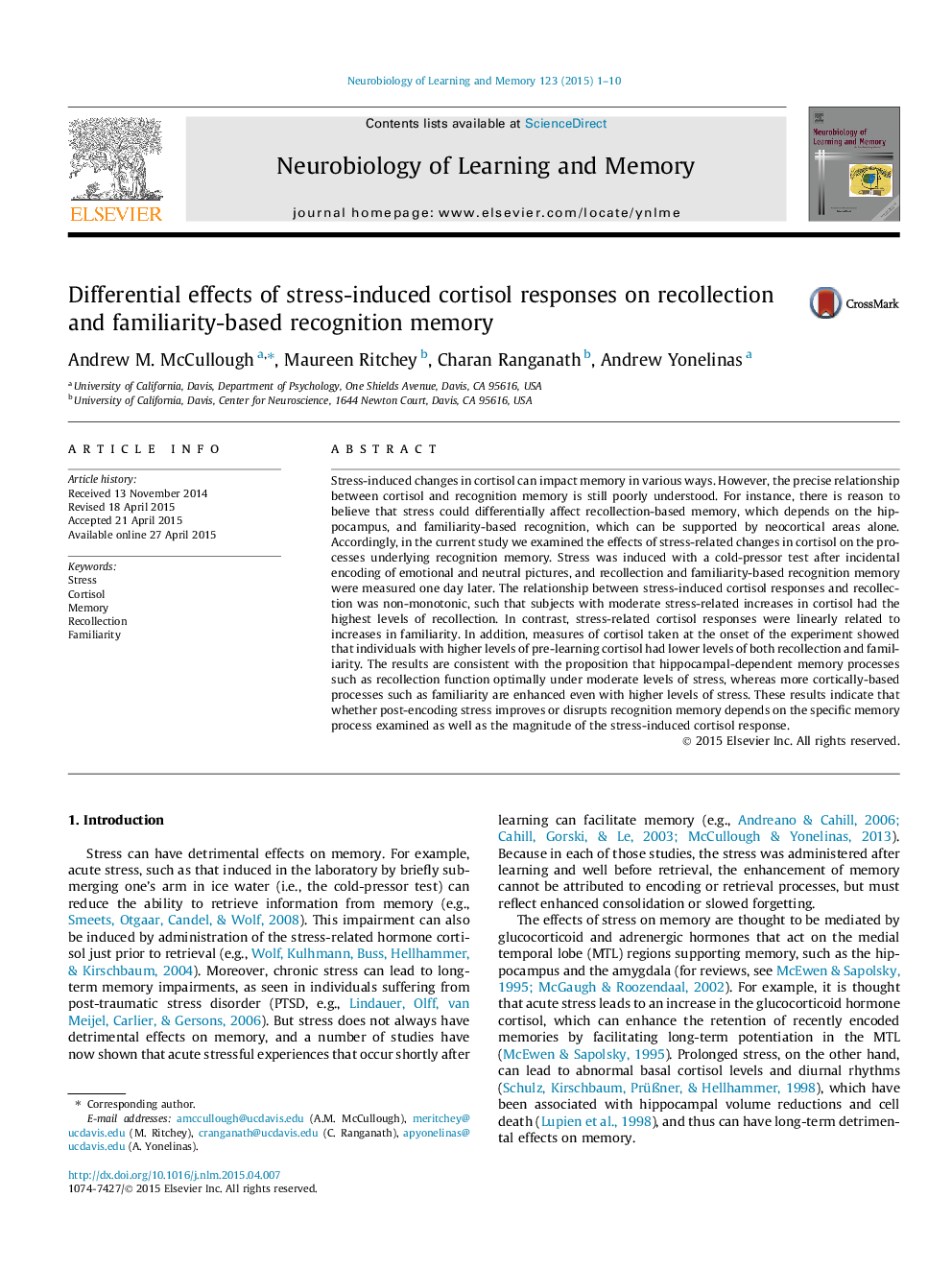| کد مقاله | کد نشریه | سال انتشار | مقاله انگلیسی | نسخه تمام متن |
|---|---|---|---|---|
| 936441 | 1475152 | 2015 | 10 صفحه PDF | دانلود رایگان |
• We examined the relationship between post-encoding cortisol release and recognition memory.
• Memory for negative and neutral pictures was tested after a 24-h delay.
• Cortisol responses were linearly related to familiarity-based recognition, but were non-monotonically related to recollection.
Stress-induced changes in cortisol can impact memory in various ways. However, the precise relationship between cortisol and recognition memory is still poorly understood. For instance, there is reason to believe that stress could differentially affect recollection-based memory, which depends on the hippocampus, and familiarity-based recognition, which can be supported by neocortical areas alone. Accordingly, in the current study we examined the effects of stress-related changes in cortisol on the processes underlying recognition memory. Stress was induced with a cold-pressor test after incidental encoding of emotional and neutral pictures, and recollection and familiarity-based recognition memory were measured one day later. The relationship between stress-induced cortisol responses and recollection was non-monotonic, such that subjects with moderate stress-related increases in cortisol had the highest levels of recollection. In contrast, stress-related cortisol responses were linearly related to increases in familiarity. In addition, measures of cortisol taken at the onset of the experiment showed that individuals with higher levels of pre-learning cortisol had lower levels of both recollection and familiarity. The results are consistent with the proposition that hippocampal-dependent memory processes such as recollection function optimally under moderate levels of stress, whereas more cortically-based processes such as familiarity are enhanced even with higher levels of stress. These results indicate that whether post-encoding stress improves or disrupts recognition memory depends on the specific memory process examined as well as the magnitude of the stress-induced cortisol response.
Journal: Neurobiology of Learning and Memory - Volume 123, September 2015, Pages 1–10
